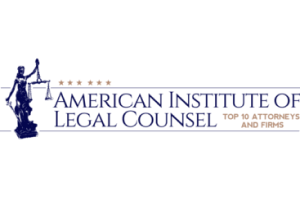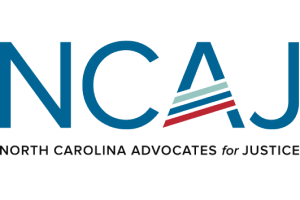Eminent Domain / Property Attorneys
Eminent Domain & Property Lawyers in Fayetteville NC
Many people believe that their private home or business is safe from government condemnation until they receive a letter informing them that their property is being taken in a public project. With the help of the eminent domain attorneys at The Richardson Firm in Fayetteville, NC, you can ensure that you receive just compensation for your loss.
If your land was taken by the power of eminent domain, you have a constitutional right to obtain just compensation – and have a say in what that compensation is. Our professional attorneys in Fayetteville will stand against the government on your behalf to fight for fair compensation.
Property Laws, Yours Rights, & Just Compensation
As cities and towns grow, so does the need for expanded roads and highways, even at the cost of people’s personal property.
Before property can be considered officially condemned, the government taking the property must offer the landowner just compensation for the property. This offer can be negotiated. Landowners can even go up against the Department of Transportation for higher compensation.
If you feel that the offer for your property was unjust, seek the help of experienced Fayetteville property lawyers from The Richardson Firm.
Murchison Road Widening – Protect Your Property Rights
The North Carolina Department of Transportation (D.O.T.) recently announced that it will be widening Murchison Road from Interstate 295 to the U.S. 401 Bypass in Fayetteville.
Construction is scheduled to begin in 2025, but the D.O.T. will soon begin “taking” private property along the road to make room for the expansion.
Eminent domain allows state, federal and local governments to condemn private property or land for public use. Although the expansion of Murchison Road is necessary for the growth of the city of Fayetteville, many landowners and property owners are facing condemnation by the government.
Is your property being impacted by a North Carolina D.O.T. project? We can fight for you. There are laws in North Carolina that protect you and your right to fair compensation for the loss or damage of your land, business, or home.
The professional eminent domain attorneys at The Richardson Firm have represented many local landowners that have had their property taken due to road construction projects. Our goal is to successfully negotiate and litigate your case to ensure fair and proper compensation. Our experienced attorneys will stand against the government on your behalf.
You can also view our blog post about the project below.
Murchison Road Widening – Protect Your Property Rights
September 28, 2022
The North Carolina Department of Transportation (D.O.T.) recently announced that it will be widening Murchison Road from Interstate 295 to the U.S. 401 Bypass in
Contact Our Fayetteville Property Law Attorneys Today!
Has the government seized your property for a public purpose? Were you fairly compensated? If you have questions about eminent powers and property laws in Fayetteville, NC, contact The Richardson Firm. Our clients are our top priority, and our attorneys offer a free initial consultation so you can learn more about your legal options. Let The Richardson Firm represent you in all of your legal situations.
To start your consultation, contact our Fayetteville law firm by calling (910) 488-5050 today or fill out a simple contact form below!
The property rights attorneys at The Richardson Firm, PLLC, proudly represent individuals experiencing condemnation and unjust compensation throughout Fayetteville and surrounding North Carolina cities, including Clinton, Fort Liberty, Whiteville, Lumberton, Spring Lake, Sanford, Dunn, and beyond.









